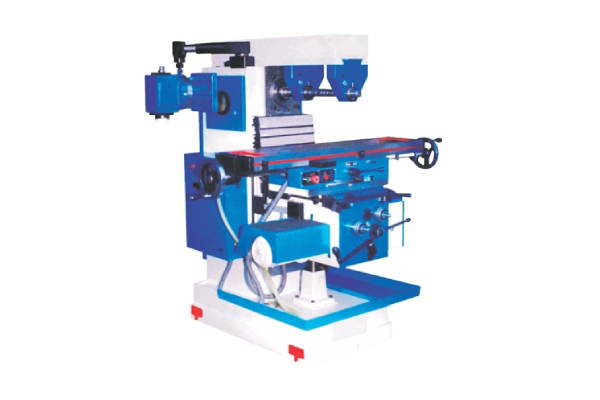
Milling machines are also referred to as multitasking machines, as they are essential in shops that work with metal and wood. A milling machine removes material from a workpiece by rotating a circular tool with several cutting blades symmetrically placed around its axis. A high-quality milling machine can withstand years of use and assist manufacturers in meeting demanding tolerance criteria.
Selecting the ideal milling machine becomes challenging if you are unfamiliar with the specifications. The correct milling machine purchase is essential for improving your industrial processes. Nevertheless, it might be intimidating to sort through the possibilities given the variety of types, features, and specifications that are accessible. You can select the ideal milling machine to suit your demands and take your projects to new levels of accuracy and productivity with some careful thought and research.
This guide provides a brief summary of milling machines. Read on for helpful advice on choosing the best milling machine for your company's requirements!
Understanding Milling Machines
A milling machine is a specialized tool used to form workpieces using a rotating cutter driven by a motor. A workpiece is a solid piece of machined material that can include unique features like holes and curves. Milling machine manufacturers in Rajkot offer various types of milling machines catering to diverse needs. It's important to assess your machining objectives before beginning the selection process, as this will help you choose the best kind for your operations.
Determining Your Needs for Machining.
When evaluating your machining demands, take into account variables like the size and complexity of the workpieces, the level of precision required, the volume of production, and the compatibility of the materials. By clearly describing your requirements, you can narrow down your alternatives and ensure that the CNC milling machine you select is in line with your operational objectives.
Analyzing the features and details.
After determining your machining requirements, carefully compare several milling machines' characteristics and technical details. Consider factors such as spindle speed, table size, power needs, and accessory availability. Give top priority to characteristics that will immediately increase productivity and produce the intended machining results.
Taking Precision and Construction Quality into Account.
Choosing a milling machine requires careful consideration of both precision and build quality. Seek models that are built with precise parts and durable materials to guarantee accuracy and long-term dependability. Furthermore, take into account elements like general construct quality, vibration damping capacity, and stiffness to provide reliable and superior machining outcomes.
Examining the options for automation and control.
Adding sophisticated control and automation features can greatly increase your milling machine's performance and usefulness. To improve efficiency and reduce the need for manual intervention, investigate features like programmable axes, CNC capabilities, and user-friendly interface designs. Investing in automation can improve machining processes' flexibility, efficiency, and error reduction.
The Process of Budget Creation and ROI Analysis.
Make a reasonable budget based on your available funds as well as the anticipated return on investment. Although it may be tempting to get the most sophisticated milling machine on the market, give priority to features that meet your financial constraints and offer real benefits. Perform a thorough cost-benefit analysis to determine the possible long-term value and profitability of your investment,
Inquire and compare vendors.
Ultimately, make sure you are buying a milling machine from a reliable source by thoroughly investigating and comparing respectable vendors. In order to acquire the milling machine for your business, take into account elements like the reputation of the supplier, sales assistance, and additional service choices like logistics management. By working with a reputable supplier, you can be confident that your milling machine will operate at its best from the start to the finish.
Conclusion
While selecting the best milling machine, you must carefully analyze your machining needs, technical requirements, financial limits, and supplier credibility. With industry knowledge and the procedures described in this guide, you may choose a milling machine with confidence that will increase output, effectiveness, and overall operational success.
Shital Machines, a milling machine manufacturer in Rajkot and India stands out as a trusted brand known for its commitment to quality and innovation. If you need any additional help or have questions about our milling machines, feel free to connect right away. Our goal is to assist you in achieving unmatched performance in your industrial operations and to support your machining endeavours.


